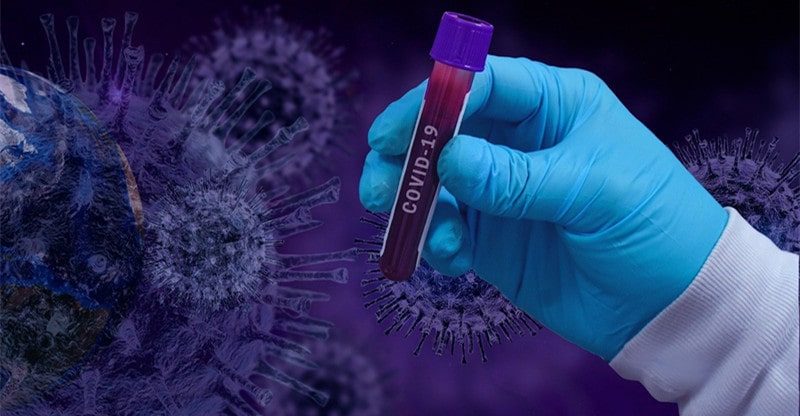3 Things To Know About The Cost Of COVID-19 Testing And Treatment
COVID-19 took us by surprise and resulted in a tremendous impact on our lifestyle and liberty.
The cost of healthcare and medical bills was a primary concern long before the pandemic. To make matters worse, treatment for the virus will affect your medical expenses. Yet, testing for COVID-19 remains a crucial strategy. It’s vital in identifying and containing the spread of the virus. If you’re concerned about the accuracy of these tests, read this: how accurate is an antigen swab test. There are, however, many concerns surrounding the cost involved.
Specific affordability issues surrounding the testing and treatment of COVID-19 has been addressed. The federal government has taken various actions to mitigate these problems. Unfortunately, you or your insurance still have to pay.
Although the health insurance plans on this link can help provide you with the coverage you need, there are still costs involved. You’ll be liable to pay for your monthly premiums and any out-of-pocket expenses that may arise. This is bound to affect your medical bills.
However, getting an estimated figure of what the cost of treatment will amount to isn’t easy. We need to explore the broader concerns surrounding deductibles, assets, and unemployment.
What Is the Cost of COVID-19 Testing?
The FFCRA (Families First Coronavirus Response Act) exemplifies most people from the cost of COVID-19 testing. Although, should you have to pay, most private providers will charge you more than $100.
Private health insurance is liable to cover all the costs related to FDA-approved testing. There are also no limits set on the number of tests that your plan or insurer is responsible for paying. Your insurance must also cover serology tests. They conduct these to establish if you’re infected with and developed antibodies to the virus.
However, the attending health care provider has to deem it medically appropriate. Unfortunately, this doesn’t apply to a limited duration or short-term plans. Your insurance is also not required to pay for routine tests. Your employer or other institutes will typically conduct these.
The CARES Act requires that out-of-network tests should also be covered in full by private plans. Insurers have to reimburse the cost related to this to the provider. However, the exact amount that your insurance has to refund wasn’t stipulated.
Out-of-network providers are also not prohibited from billing you for the balance. If this happens, you must submit the bill to your health plan for reimbursement.
People that don’t have insurance are fortunately covered. The FFCR Act provides testing through Medicaid with full federal financing. The government also allocated $2 billion, set aside to refund providers for testing-related costs of the uninsured.
What Are the Costs Related to COVID-19 Treatment?
There’s been no comprehensive federal legislation to limit cost-sharing for COVID-19 treatment.
Treatment costs for the virus depend on your type of coverage. Yet, these expenses can result in serious affordability concerns. People with more severe cases of the infection may need hospitalization. With no existing cure, COVID-19’s treatment can become very expensive, especially for under-insured and uninsured people.
Out-of-pocket costs related to hospitalization can amount to a sizable sum. People with employer-sponsored insurance can expect to pay more than $1,300. Those who have private coverage are likely to pay even more. This is due to higher cost-sharing and larger deductibles.
Out-of-network doctors are also free to bill you for costs not covered by your insurance unless they receive grants through the CARES Act.
Medicare beneficiaries that need hospitalization for COVID-19 treatment are subject to the following:
- A Part A deductible of $1,400
- Co-payments for skilled nursing facilities of $176
- $352 to $704 per day for extended inpatient hospital stays
- A deductible of $198 for Part B outpatient services
- Twenty percent coinsurance on most Part B covered services.
The out-of-pocket requirements for inpatient care vary for the beneficiaries of Medicare Advantage. The length of your stay will determine the amount that you’re responsible for. Yet, most of these insurers have volunteered to waive all cost-sharing expenses.
Little to zero out-of-pocket costs generally apply to the beneficiaries of Medicaid. Also, the FFCR Act requires that the individual states cover all COVID-19 costs. This ensures that Medicaid enrollees have no testing or treatment-related cost-sharing.
Uninsured people may be able to access free COVID-19 treatment. If not, they’ll be responsible for paying the expenses in full.
How Much Can You Expect to Pay for COVID-19 Preventative Care and Future Vaccination?
It’s well known that there’s no vaccine for COVID-19 yet. Even so, should one be developed, it’s specified that the cost must be reasonable and fair. Your insurance will also most likely be liable to cover the expense in full, if or when an approved vaccination becomes available.
By law, all federally-recommended preventative health care must be covered with no cost to the beneficiary. This applies to:
- All private health insurance
- Medicaid
- Medicare
- Medicare Advantage
However, it has yet to be established how vaccination costs will be dealt with for the uninsured. For the time begin to protect yourself and others by wearing masks and take good hygiene measures. Protective masks are available online and in retail stores.
Avoiding Unnecessary Expenses
Although COVID-19 testing is covered in full, treatment for the virus isn’t. It can potentially accumulate to become a considerable amount. To avoid any unnecessary and unwanted costs, it’s now, more than ever, vital to invest in a comprehensive health care plan for you and your family.
Unfortunately, this is the only way to ensure that you can afford this virus’s treatment and not end up in debt.



